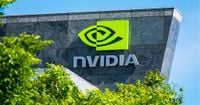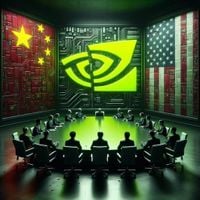In a surprising turn of events, major technology companies in China are grappling with new American restrictions on the export of artificial intelligence chips from Nvidia. This move, announced on April 9, 2025, has raised significant concerns among Chinese traders and highlights the escalating technological tensions between the United States and China.
Nvidia, the American tech giant, revealed that U.S. authorities mandated the company to obtain a license to export its H20 chip to China, complicating its business landscape. The H20 chip was the only legal option left for Nvidia in the Chinese market following previous restrictions imposed in October 2023. This sudden requirement has left Nvidia's sales team in China blindsided, as they were unaware of the impending restrictions prior to the official announcement.
According to sources reported by Reuters, major Chinese firms such as Alibaba, Tencent, and ByteDance had been anticipating the delivery of H20 chips by the end of the year, with orders valued at approximately $18 billion placed since the beginning of 2025. However, with the new restrictions in place, these orders are now at risk.
In an official statement, Nvidia acknowledged that the restrictions could lead to substantial financial repercussions, projecting losses of up to $5.5 billion in the first quarter due to related inventory and purchase commitments. Following this announcement, Nvidia's stock saw a significant decline, dropping by 6% in after-hours trading.
Analysts have noted that the Chinese market constituted about 13% of Nvidia's total sales in the financial year ending January 2025. This figure underscores the critical importance of China as a market for Nvidia, making the implications of these restrictions even more severe.
In light of these developments, industry experts suggest that the new American restrictions could inadvertently benefit competitors like Huawei. As tensions between Washington and Beijing continue to simmer, Huawei may capitalize on the growing demand for artificial intelligence chips within China.
As the global technology landscape evolves, the ramifications of these restrictions on Nvidia and the broader implications for U.S.-China relations remain to be seen. The situation is a stark reminder of the intricate and often contentious interplay between technology and geopolitics in today's world.





